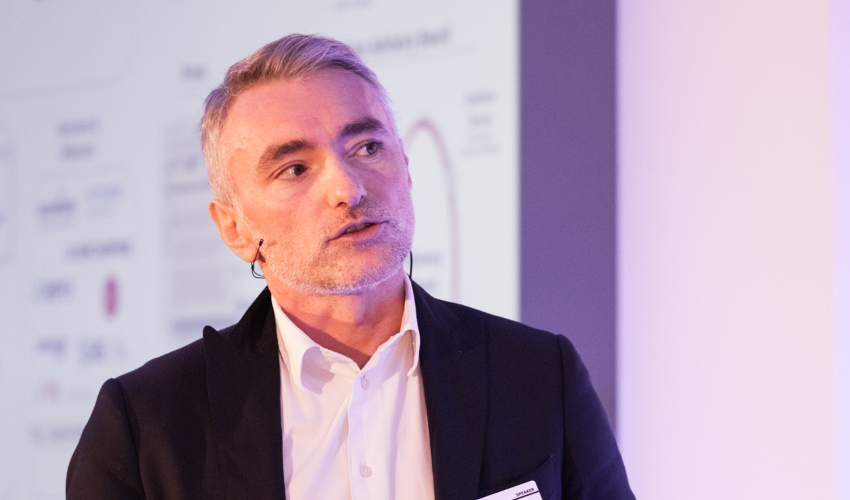
Robot Advisor, the Investor's Best Friend
THANKS TO OPEN BANKING WE WILL SEE AN EVOLUTION IN DATA ANALYTICS, SAYS PASQUALE ORLANDO, BOCCONI ALUMNUS AND FOUNDER OF DEUSTECHNOLOGY. AND WE WILL LEARN TO TRUST EXPERT SYSTEMSby Emanuele Elli
Translated by Alex Foti
Convergence of digital media, investment in portfolio analytics, data sharing, absence of front-end. Although the expression open banking was not current then, its key principles were already well present in the vision of Pasquale Orlando when in 2010, after a degree in corporate finance at Bocconi and several experiences in strategic marketing applied to wealth management, he gave life to Deus Technology. The company today is one of the Italian prime movers of fintech, one of the major sponsors of robo advisors and one of the most ready to take advantage of market opportunities that open with the coming into force of the European directive on digital payments (PSD2) which heralds the new era of open banking.
➜ What are the scenarios for banks with the coming into force of PSD2?
In the short term I believe that open banking will remain circumscribed to banks and investment funds. Today the banks' investments are concentrated on organizational issues and the empowerment of internal resources and digitization of processes for the benefit of asset managers. It is what is called “robo for advisor”. There are about €1,400 billion lying in the current accounts of Italian banks, but the banks currently have no offer designed to enable also small investors to access investment instruments. If things do not change, the first effect that PSD2 could be a flight of these customers who can aggregate their assets and move towards other fiancial marketplaces.
âžœ What happens when fintech can access data of banks’ clients and vice versa?
The IT infrastructures we have today allows various systems to communicate without problems with each other. However, the issue is cultural rather than a technical one. Banks feel violated by this legislation; exposing customer data is contrary to their DNA and at the moment they do not see it as an opportunity but as a problem. Most of the do not even see the risks involved. However, the cultural issue also affects customers. We have already witnessed something similar with ETFs (Exchange-Traded Funds), products that I consider always advisable because they are inexpensive, diversified, transparent; after they started spreading, at a certain moment Italian banks turned their backs on ETFs, and the sector’s growth started to flag compared with traditional equity funds. In the same way, I expect that when tomorrow the client enquires about open banking, especially about its security, and that he/she is likely to be discouraged from opening his/her banking information to third parties. Fintech will try to counter this perception with awareness campaigning but, in the end many savers will opt not to join.
➜ Therefore, open banking will initially be addressed to a high-end target, private and wealth management, where, however, the personal relationship between client and financial consultant remains central..
In wealth management, this relationship will always remain fundamental; the technology will offer new operational support and act as facilitator for new relationships. On the other hand, open banking is likely to have its largest effect precisely on those millions of people to whom no investment service is offered today. With a minimum of financial education, everyone will have a clear understanding of the risk-to-return ratio and will be able to have access to new forms of investment which will be suggested automatically.
➜ So should we trust a robot?
Certainly. The premise is that all these systems are based on the original work of experienced people, so they offer the highest quality with the costs being reduced by economies of scale. Furthermore, the robo advisor, by analyzing the situation, assets and habits of a person, is not only able to propose the most suitable solutions for a given profile, but will keep the position monitored over time, updating the saver on the moves to be made. Today all Italian financial consultants want to sell you a BTP, a multi-year Italian treasury bond, but how many of them keep an eye on the product and call the customer to tell him/her to sell at peak or buy back at trough? A robot can do it. And with the advent of open banking, data analytics will be able to evolve further, so that a some point expert systems will be able to understand even at what stage of the lifecycle an investor is, and suggest the most appropriate investment strategy. Eventually the robot will know the client more closely than any consultant will ever be capable of doing.
